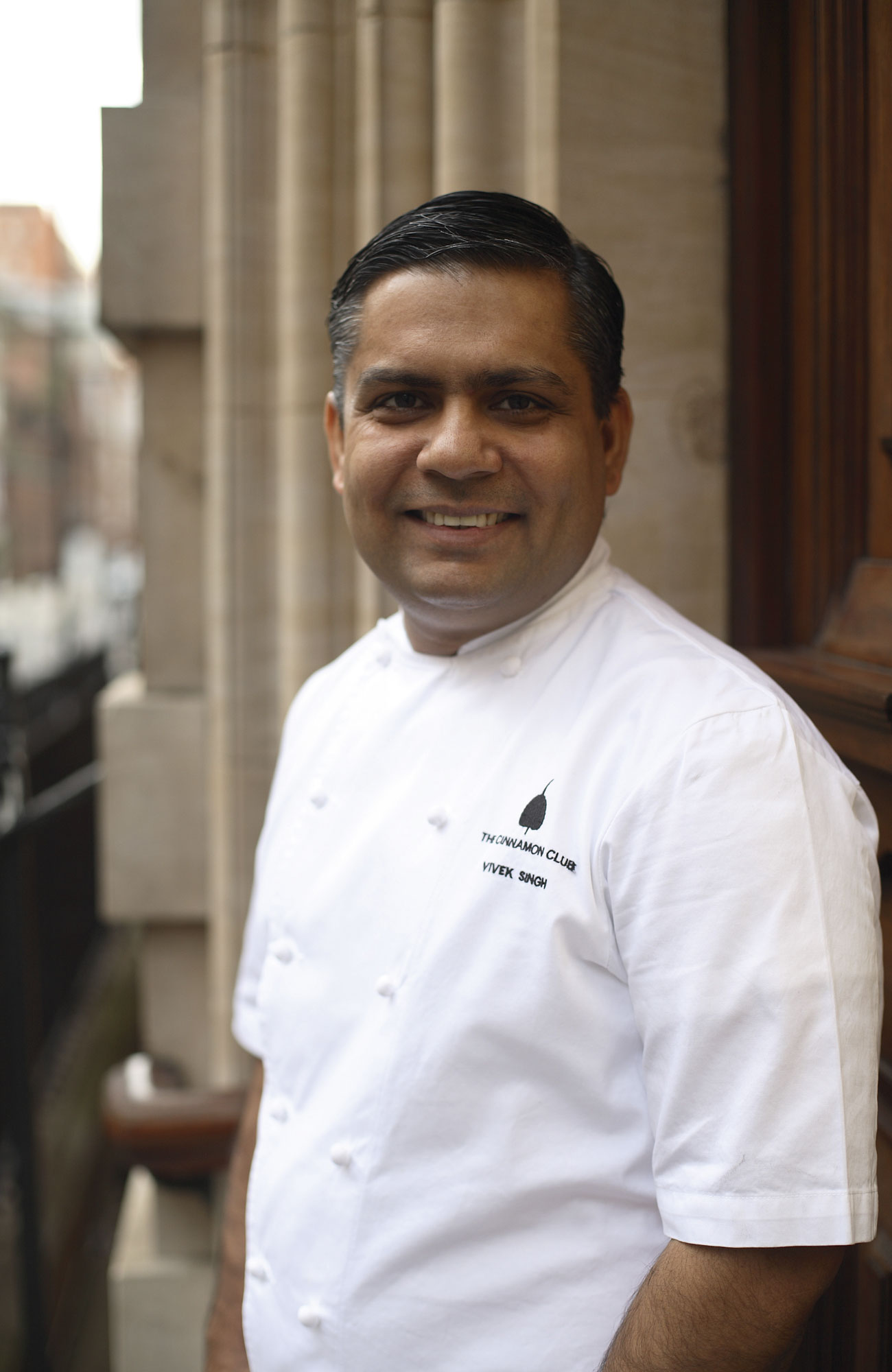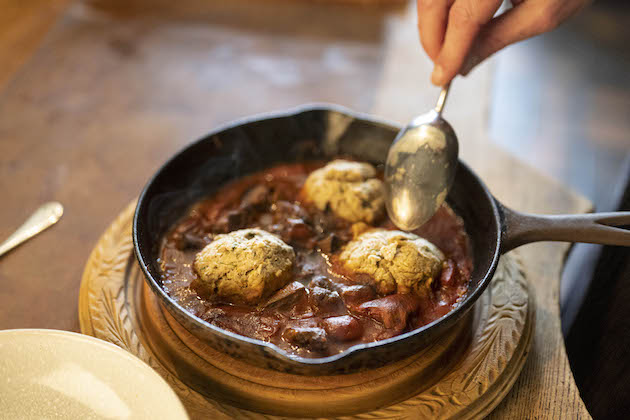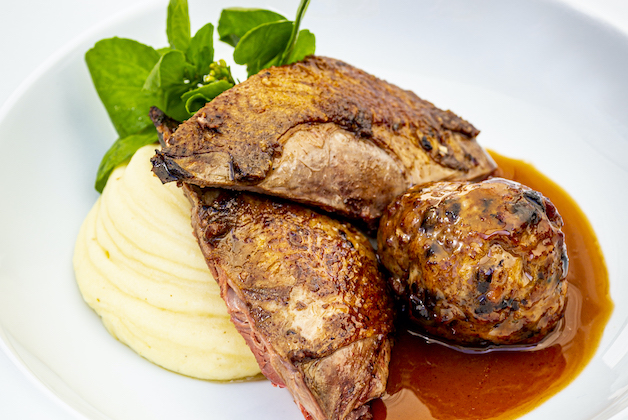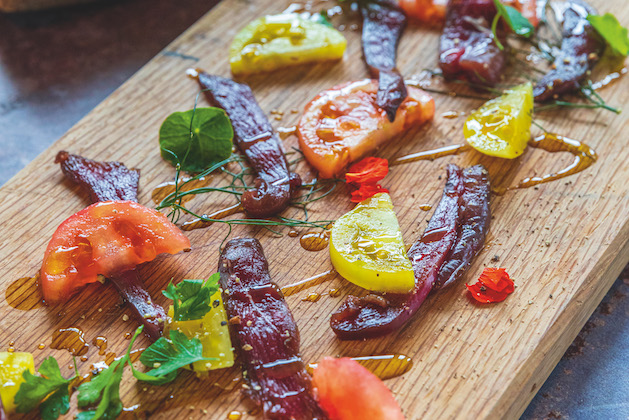The Cinnamon Club head chef Vivek Singh Q&A and recipe
The Cinnamon Club in Westminster is one of the most famous Indian restaurants in the UK and we asked head chef Vivek Singh for his thoughts on game.
Questions to Cinnamon Club head chef Vivek Singh
Q.
Where did you start working as a chef and how did The Cinnamon Club develop?
A.
After graduating from catering college I joined the Oberoi Hotel Group as a specialist in Indian cuisine. I first worked at its flight kitchens in Mumbai where 2,000 guest meals were produced every day for various airlines. I then moved to the Grand Hotel in Calcutta and then on to Oberoi’s flagship Rajvilas in Jaipur. Rajvilas was voted the most luxurious hotel in the world by Tatler in 2001.
I was recruited by The Cinnamon Club in Westminster as executive chef for the launch in 2001. The idea of The Cinnamon Club developed from a desire to push the boundaries and change the perceptions of Indian food, both in India and abroad. I felt that Indian food had been stifled in a straightjacket of traditions and needed to be pushed around. Thus, through innovation, creativity and challenging the rulebook, my internal turmoil was at the heart of the idea of The Cinnamon Club.
Q.
There are three Cinnamon restaurants in London. Are there plans for any more?
A.
The short answer is yes. We are always open to opportunities and take them as they come, one prospect at a time.
Q.
Do your restaurants serve a lot of game?
A.
We love cooking with game. It allows us to be creative by using unusual, seasonal ingredients that are not available throughout the year. We love to recreate dishes that have been forgotten from the repertoire of traditional Indian cooking, and cooking with game is one way that allows us to do so.
Q.
Which type of game do you enjoy cooking the most?
A.
I enjoy cooking with all types of game but seem to be partial to more feathered than furred, although I’m not sure why. My favourite things to cook are grouse, partridge and pheasant. My passion for cooking game is probably due to the fact that these items are available for such a short period of the year, and thus I still get excited every time the game season comes around!
Q.
Why do you think game goes so well with Indian flavours?
A.
I think it marries so well for several reasons. Game birds must eat what is naturally available to them in their habitats, and so they develop stronger, intense, complex flavours. This enables game birds to withstand spice in a much more developed way, versus that of commercially reared poultry, for example.
Q.
Do you think we will see more Indian restaurants throughout the UK serving game?
A.
I hope so. We are already seeing more and more restaurants warming to game, partly I believe because of increased awareness, in addition to the fact that it is economical, interesting, and environmentally friendly during the season.
Q.
Apart from Indian food, which British dishes do you enjoy?
A.
I love traditional fish and chips, a good shepherd’s pie and cullen skink.
Q.
Do you ever get the opportunity to go out shooting in the UK?
A.
Yes, I have been out on a few trips but I must admit, I’m a terrible shot!
Q.
All hunting is banned in India – do you think this is necessary?
A.
If you know India the way I know it, then the answer is definitely yes. If restrictions do get lifted, I fear there will be nothing left, as we would eat everything.
Roast grouse with sweet pumpkin pickle
Ingredients
Serves four
• 4 grouse crowns (skinned, legs removed, and wishbone removed)
• 1 tablespoon vegetable or corn oil
For the marinade
• 1 tablespoon vegetable or corn oil
• 1½ teaspoons salt
• 1 tablespoon ginger and garlic paste
• 1 teaspoon cumin seeds, roasted in a dry frying pan and then coarsely ground
• 6 cloves, roasted in a dry frying pan and then coarsely ground
• 1 teaspoon red chilli powder
• 2 tablespoon Greek yoghurt
• 1 tablespoon chopped fresh coriander
Pumpkin pickle
• 2 tablespoons vegetable or corn oil
• ¼ teaspoon fenugreek seeds
• 2 dried red chillies, broken into2–3 pieces each
• 400g peeled pumpkin flesh, cut into 1cm (½-inch) dice
• 1 teaspoon salt
• 1 teaspoon red chilli powder
• ½ teaspoon ground turmeric
• 2 tablespoons sugar
• 1 teaspoon dried mango powder (or mango pickle from a jar)
Method
• Mix all the marinade ingredients together in a large bowl and gently fold the grouse crowns into the mixture. Leave to marinate in the fridge for around 30 minutes.
• The pumpkin pickle is my mother’s recipe. I am a great fan of its rich, spicy flavours. It makes an excellent accompaniment to game dishes such as grouse or venison; it’s fantastic with parathas and may even be used as a spread in sandwiches.
• Heat the oil in a pan, add the fenugreek seeds and dried red chillies and let them pop. Add the pumpkin and stir over a high heat for three or four minutes. Stir in the salt, chilli powder and turmeric, then reduce the heat, cover and cook until the pumpkin is soft and begins to break down. Stir in the sugar – the sweetness balances the heat and spice and also makes the pickle glossy. Finish with the dried mango powder or mango pickle.
• To cook the grouse, heat the oil in a frying pan, add the marinated grouse breasts and sear for 30 seconds on each side. Place the pan in a hot oven and cook for five minutes. Remove from the heat, sprinkle with green coriander and leave to rest for five minutes, and then serve with the pumpkin pickle.
Tip
• Take care not to overcook the breasts, as they dry up very quickly. Since it is a verylean meat, grouse is best cooked fast and served medium. Cooking it on the bone also prevents it getting dry.









